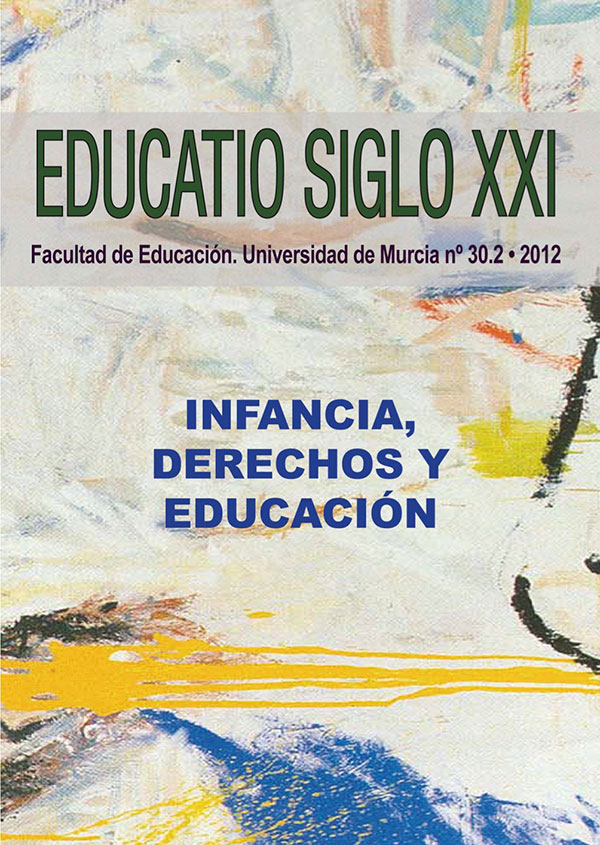Educación para todos y todas. Análisis del modelo educativo-social para una Educación Intercultural.
Resumen
El presente trabajo ofrece un análisis crítico y reflexivo sobre el modelo de educación intercultural como parte del paradigma actual de escuela inclusiva. Educación inclusiva y educación intercultural se presentan, por un lado, como parte de un modelo compatible e integrado, fundamentado en la diversidad cultural como riqueza; y por otro, como indicadores de calidad de la educación para todas las personas en un marco de derechos humanos universales y valores de segunda generación propios de sociedades democráticas del siglo XXI. La apuesta por la educación intercultural como modelo de escuela inclusiva se convierte en un motor de renovación pedagógica propulsor del compromiso de todos los agentes implicados en la construcción de comunidades de aprendizaje, del diseño de un proceso de evaluación para el cambio y la mejora, y la construcción de modelos de formación docente coherentes con el desarrollo de competencias interculturales. De este modo, la educación intercultural reconoce el derecho universal de la educación para todos y todas, una educación capaz de generar modelos de participación democrática y cohesión social que trasciendan los paradigmas integradores para alcanzar otros más globales e integrales de educación inclusiva.
Descargas
-
Resumen4341
-
PDF5808
Las obras que se publican en esta revista están sujetas a los siguientes términos:
1. El Servicio de Publicaciones de la Universidad de Murcia (la editorial) conserva los derechos patrimoniales (copyright) de las obras publicadas, y favorece y permite la reutilización de las mismas bajo la licencia de uso indicada en el punto 2.
2. Las obras se publican en la edición electrónica de la revista bajo una licencia Creative Commons Reconocimiento-NoComercial-SinObraDerivada 4.0 Internacional (texto legal). Se pueden copiar, usar, difundir, transmitir y exponer públicamente, siempre que: i) se cite la autoría y la fuente original de su publicación (revista, editorial y URL de la obra); ii) no se usen para fines comerciales; iii) se mencione la existencia y especificaciones de esta licencia de uso.
3. Condiciones de auto-archivo. Se permite y se anima a los autores a difundir electrónicamente las versiones pre-print (versión antes de ser evaluada) y/o post-print (versión evaluada y aceptada para su publicación) de sus obras antes de su publicación, ya que favorece su circulación y difusión más temprana y con ello un posible aumento en su citación y alcance entre la comunidad académica. Color RoMEO: verde.











